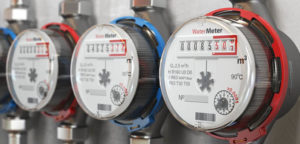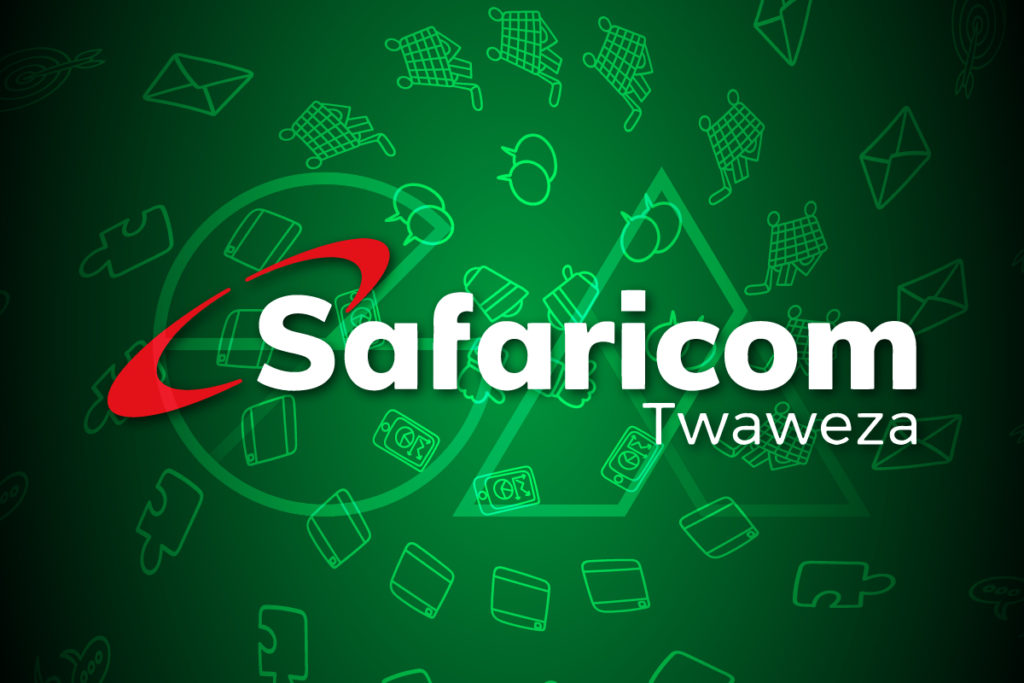Telecommunications company; Safaricom, is reportedly setting its sights on the Billions of Kenyan Shillings to be gained in revenues from the installation of smart meter systems for public water companies so as to help them reduce theft and leakages.

The utility companies which are controlled by the Kenyan Government have reportedly been struggling with system losses yearly. An average of 47 percent of the water channeled into their distribution networks have not been billed as a result of theft, inaccuracies with regards to metering, and leakages.
The telecommunications giant; Safaricom is offering to provide technology which would make it possible to track the leakages, read the meters remotely, track theft, and track the leakages. In exchange, it will receive a share of the recovered revenues.
The Chief Executive Officer of Safaricom; Peter Ndegwa made it known during a recent interview that, “We do have the technology that we believe can help utility companies of which Kenya Power is one of them and also water companies to be able to reduce the level of losses by creating transparency in distribution.”
This is part of Safaricom’s plan to diversify its income from areas other than Short Message Services (SMS), voice, money payments and transfers.
The telecommunications operator; Safaricom, is also in negotiations with the Kenya Power and Lighting Company (KPLC) which is more commonly known as Kenya Power. The negotiations are regarding the possible installation of a 31.7 billion Kenyan Shilling smart meter system. This is to enable it; Kenya Power and Lighting Company (KPLC) cut down its power losses.
It is believed that the deal if it goes through, could earn Safaricom not less than 53 billion Kenyan Shillings over a period of eight (8) years.
Read Also: Safaricom Set To Gain 53 Billion Kenyan Shillings From Smart Electricity Meters
Under the agreement which was drafted Safaricom would, receive 75 percent of the additional sales or 53 billion Kenyan Shillings. The Kenya Power and Lighting Company (KPLC) will in turn, make 17.9 billion Kenyan Shillings.
Safaricom could potentially earn 8.7 billion Kenyan Shillings every year if it installs the smart meters in the water sector and works with a 75 percent – 25 percent revenue share model in its favour.
WASREB which is the Water Services Regulatory Board, has revealed that in the year which ended in June of 2021 the water utility companies had lost water worth 11.6 billion Kenyan Shillings to theft and leakages.
Safaricom will be in charge of the construction, operation, and subsequent transfer of the smart grids to the various water companies after a period of time which will be agreed upon.
Safaricom, will also make the initial investment that will be needed.
Regarding the proposal for the water companies, Safaricom has not yet provided any additional statement(s).
The telecommunications company; Safaricom which is a licensed applications provider, is looking to use its large scale fast internet infrastructure to support the proposed smart grids.

The water companies in Kenya have been faced with a serious increase in cases of theft, leakages, and the deteriorating network. All of which have resulted in the loss or draining of around half of the total volume of water generated.
According to the Water Services Regulatory Board (WASREB), 21 counties have lost more than 50 percent of the water that have been produced. This has in turn played a part in the increase of 6 Kenyan Shillings per unit cost of water, that is being charged on average.
This has led to a number of customers, passing on the cost to the end users as prices have increased to 93 Kenyan Shillings for every cubic metre that was consumed in the year prior (2020). This is significantly higher than the 87 Kenyan Shillings per cubic metre that was the case in 2019.

The Water Services Regulatory Board (WASREB) believes that illegal extractions and corruption, are to blame for the losses. It has called for the severe enforcement of the rules that have been set in place. It believes this will help it cut down the leakages to the maximum acceptable level which stands at 20 percent.
The volume or amount of water lost is reportedly more than two times the limit that is allowed, which is 20 percent and equivalent to what residents who live in Nairobi and companies as well, utilize in a period of six and a half months.
The losses have resulted in a reduction in investments, while also causing a major gap or disconnect between demand and the water supply, resulting in severe cases of water shortages.
According to Business Daily Africa, there are around 20 million individuals living in Kenya, that do not have access to basic water services. This is 30 percent of the entire population.
4 million people do not have any sanitation facilities or access to them and have to make do with relieving themselves in public.
35 million do not have access to a essential sanitation services.
A report by the Water Services Regulatory Board (WASREB) revealed that water service providers in Kenya served 14.7 million people as opposed to the total of 25.7 million people who reside in their service areas across the 47 counties.

Safaricom believes that it will be able to assist the water companies with the recovering or salvaging of a substantial portion of the lost revenues via its smart meters, and for a few. The telecommunications company is looking to through this and other ventures, boost up its diversification outside of its core market which is telecommunications.
Safaricom in 2014, began installing a surveillance and communication system worth 14.9 billion Kenyan Shillings. The surveillance and communication system, is connected to police stations in order to assist in the combating of crime in Mombasa and the nation’s capital city; Nairobi.
Its efforts to further diversify its revenue streams include the upgrading of its data business in order to effectively balance out the slower growth it has experienced in its mobile calls. Said slower growth, has led to it placing more focus on Internet services and its mobile money offering; M-Pesa to further drive the growth of the company in future.
In 2019 it; Safaricom successfully purchased a stake in Circle Gas Limited; a company based in the United Kingdom (UK). The purchased marked Safaricom’s entry into the Cooking Energy industry.
Circle Gas Limited has a local subsidiary operating in Kenya under the name; M-Gas. Safaricom already started working with M-Gas even before the deal.
According to Safaricom its stake in Circle Gas Limited, will further ensure that it is able to power financial inclusion via technology by offering a clean and affordable energy source for cooking to its customers.
How informative was this article? Are there any other news topics, categories, or How To topics, that you would like us to write on? Feel free to reach out to Mpesa Pay in the comment section.


